Your Why does my baby keep spitting up formula images are available in this site. Why does my baby keep spitting up formula are a topic that is being searched for and liked by netizens today. You can Get the Why does my baby keep spitting up formula files here. Get all royalty-free photos.
If you’re looking for why does my baby keep spitting up formula images information related to the why does my baby keep spitting up formula interest, you have visit the right blog. Our site frequently gives you hints for seeing the highest quality video and picture content, please kindly search and locate more enlightening video content and images that match your interests.
Why Does My Baby Keep Spitting Up Formula. When the air comes back up as a burp so does the breast milk or formula. It happens when milk or food comes back up the babys esophagus. Luckily most babies stop spitting up around the 12-month mark. Ensuring that your baby is latched on correctly and burping them before throughout and.
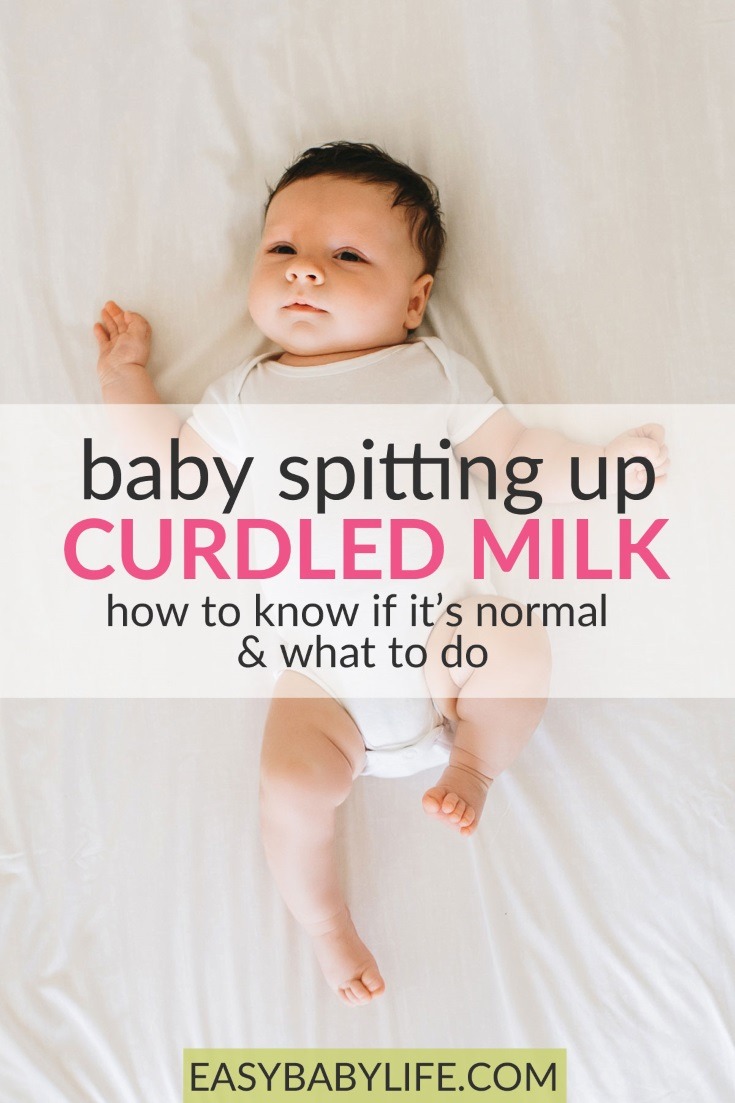 Baby Spitting Up Curdled Milk Learn Why And When To Worry
Baby Spitting Up Curdled Milk Learn Why And When To Worry
Spitting up is common in healthy babies. Switching from breastmilk to specific formulas such as low-lactose formula or hypoallergenic formula hydrolysate formula may improve the babys condition. Just in time to start throwing their food at you so you can rest assured your clothing will continue to be ruined and stained. In addition to difficulty gaining weight or possibly losing weight signs that reflux is causing a problem include that an infant. Its estimated that at least 50 of babies would have done so before clocking 3 months. Babies spit up all the time because of their undeveloped digestive system.
Lactose intolerance or milk allergy could cause frequent spitting up of curdled milk in some babies.
A pediatrician will help you figure the allergen. 1 Until hes about 4 months old your babys tummy can hold only small amounts of milk at a time. This allows undigested food milk or even mucus to pass back up through the mouth. Some babies also spit up because they are sensitive to milk protein cows milk or the formula. The reason for this is that digestion begins as soon as your baby swallows her first mouthful. And for a baby who is 3-4 months old digestion proceeds at an average rate of 1 ounce 30 ml every 10-15 minutes.
Its estimated that at least 50 of babies would have done so before clocking 3 months. At birth your babys tummy is about the size of a small marble. Switching from breastmilk to specific formulas such as low-lactose formula or hypoallergenic formula hydrolysate formula may improve the babys condition. Its normal for babies to spit up both breast milk and formula. Your baby has GER Gastroesophageal Reflux This simply means that the breastmilk or formula that has made its way down to your babys stomach is returning up the esophagus and into and out of the mouth.

And for a baby who is 3-4 months old digestion proceeds at an average rate of 1 ounce 30 ml every 10-15 minutes. Infants spit up after feedings sometimes every feeding and often bring up some milk when they burp. Switching from breastmilk to specific formulas such as low-lactose formula or hypoallergenic formula hydrolysate formula may improve the babys condition. Whether your child is spitting up or vomiting its important to keep watch to. Babies spit up all the time because of their undeveloped digestive system.

Doctors may use the phrase happy spitter to describe a baby who spits up but is generally comfortable has no breathing problems and is thriving and growing well. A pediatrician will help you figure the allergen. The reason for this is that digestion begins as soon as your baby swallows her first mouthful. Doctors may use the phrase happy spitter to describe a baby who spits up but is generally comfortable has no breathing problems and is thriving and growing well. During their first three months about half of all babies experience their stomach contents coming back up into the esophagus a condition known as.

Allergic reactions usually accompany other symptoms like diarrhea or rashes. In addition to difficulty gaining weight or possibly losing weight signs that reflux is causing a problem include that an infant. Some babies also spit up because they are sensitive to milk protein cows milk or the formula. 1 Until hes about 4 months old your babys tummy can hold only small amounts of milk at a time. It causes the milk to come back out of your babys stomach and then through his mouth or nose.

If a child is spitting up and has any of the symptoms listed above then they may have gastroesophageal reflux disease or GERD and need further evaluation and treatment. Luckily most babies stop spitting up around the 12-month mark. Lactose intolerance or milk allergy could cause frequent spitting up of curdled milk in some babies. Infants spit up after feedings sometimes every feeding and often bring up some milk when they burp. But if you think your babys in pain or youre worried about what youre feeding him you should feel comfortable calling your pediatrician at any.

It can seem like your baby is spitting up an awful lot but it is extremely rare for a baby to spit up an entire feeding. Allergic reactions usually accompany other symptoms like diarrhea or rashes. Spit-up is not uncommon in babys first year and usually occurs if your baby is fed too much swallowed too much air or it can sometimes occur. Ensuring that your baby is latched on correctly and burping them before throughout and. A baby spitting up curdled milk is practically a rite of passage.
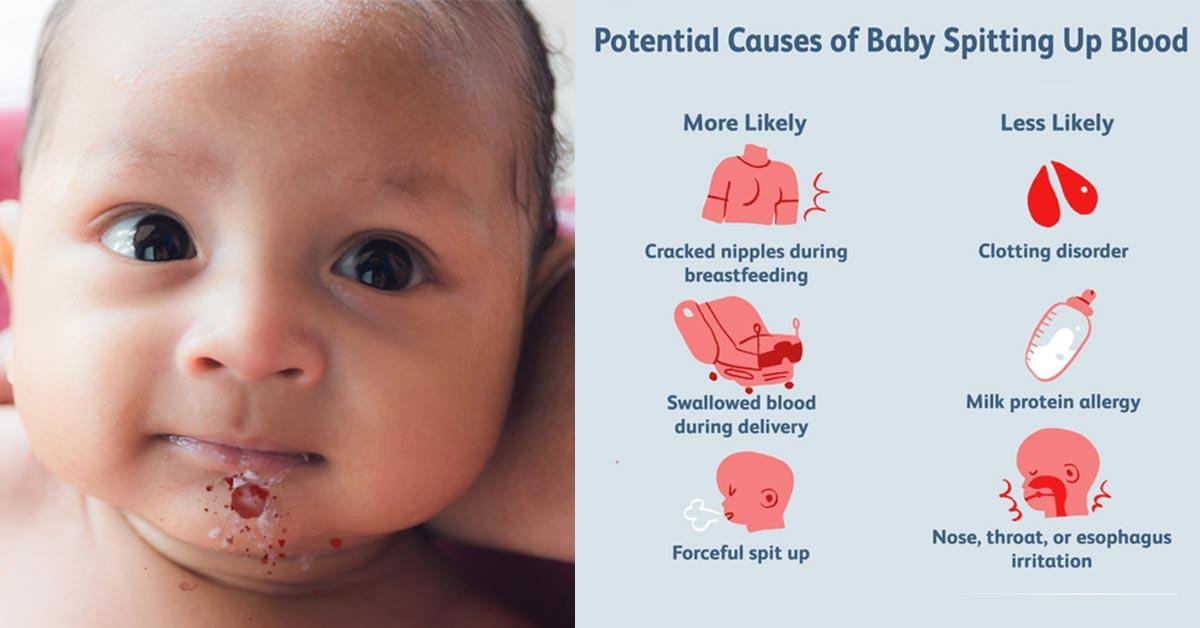
Its estimated that at least 50 of babies would have done so before clocking 3 months. Its normal for babies to spit up both breast milk and formula. Just in time to start throwing their food at you so you can rest assured your clothing will continue to be ruined and stained. Spit-up is not uncommon in babys first year and usually occurs if your baby is fed too much swallowed too much air or it can sometimes occur. The reason why you might notice breast milk or formula coming out of your babys nose is infant reflux.
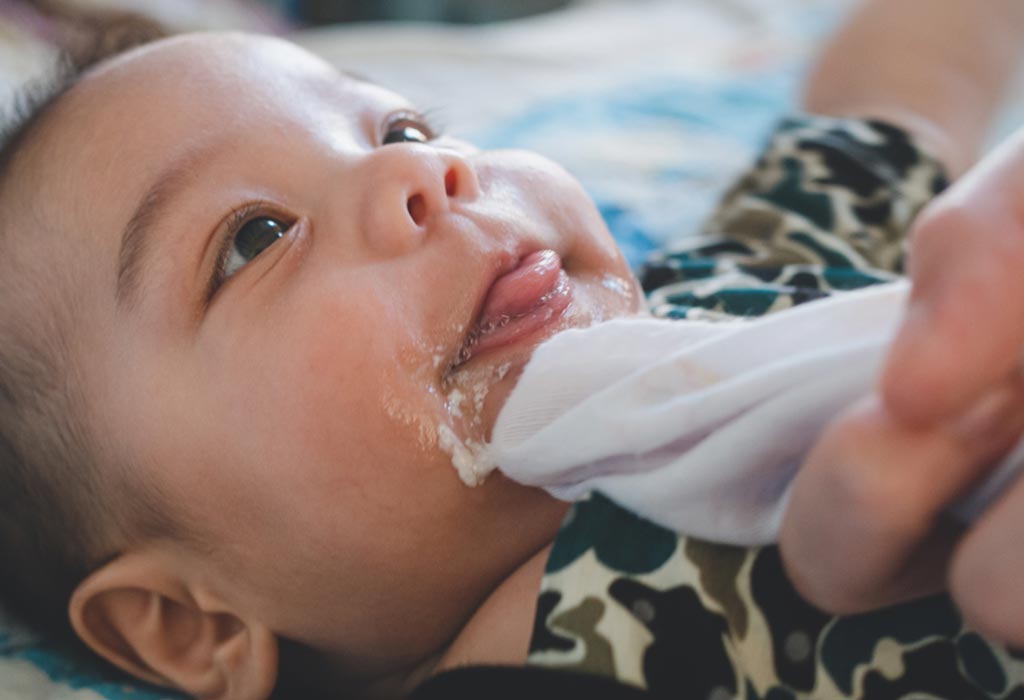
Whether your child is spitting up or vomiting its important to keep watch to. It happens when milk or food comes back up the babys esophagus. Infants spit up after feedings sometimes every feeding and often bring up some milk when they burp. The reason why you might notice breast milk or formula coming out of your babys nose is infant reflux. GER effects about 40 to 65 of babies ages one to four months and typically resolves around about one year of age.

Your baby has GER Gastroesophageal Reflux This simply means that the breastmilk or formula that has made its way down to your babys stomach is returning up the esophagus and into and out of the mouth. Spit-up is not uncommon in babys first year and usually occurs if your baby is fed too much swallowed too much air or it can sometimes occur. The reason why you might notice breast milk or formula coming out of your babys nose is infant reflux. It can seem like your baby is spitting up an awful lot but it is extremely rare for a baby to spit up an entire feeding. And for a baby who is 3-4 months old digestion proceeds at an average rate of 1 ounce 30 ml every 10-15 minutes.

Its all about tummy size. Its normal for babies to spit up both breast milk and formula. A pediatrician will help you figure the allergen. Spit-up is not uncommon in babys first year and usually occurs if your baby is fed too much swallowed too much air or it can sometimes occur. The reason for this is that digestion begins as soon as your baby swallows her first mouthful.

Lactose intolerance or milk allergy could cause frequent spitting up of curdled milk in some babies. This valve is not fully formed. Lactose intolerance or milk allergy could cause frequent spitting up of curdled milk in some babies. Your baby has GER Gastroesophageal Reflux This simply means that the breastmilk or formula that has made its way down to your babys stomach is returning up the esophagus and into and out of the mouth. After 3 days it is about the size of a ping-pong ball but still cant hold much.
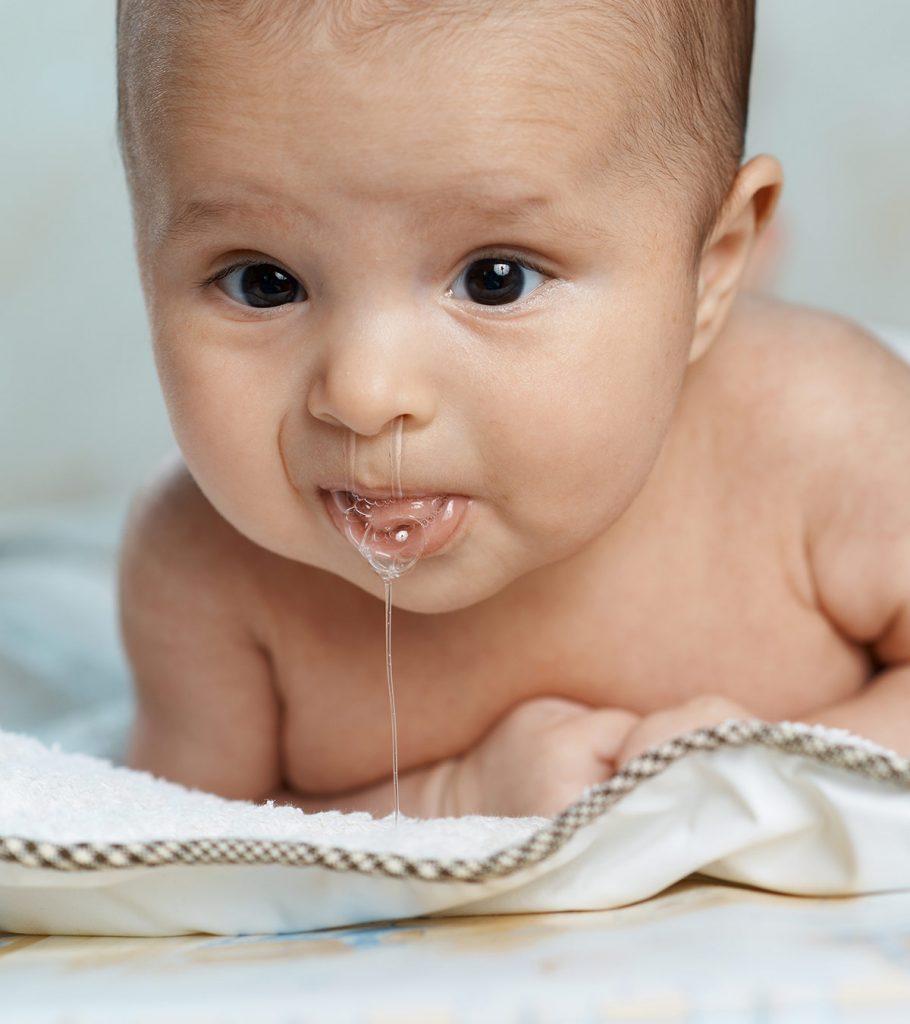
The reason why you might notice breast milk or formula coming out of your babys nose is infant reflux. Doctors may use the phrase happy spitter to describe a baby who spits up but is generally comfortable has no breathing problems and is thriving and growing well. Its estimated that at least 50 of babies would have done so before clocking 3 months. Allergic reactions usually accompany other symptoms like diarrhea or rashes. When the air comes back up as a burp so does the breast milk or formula.
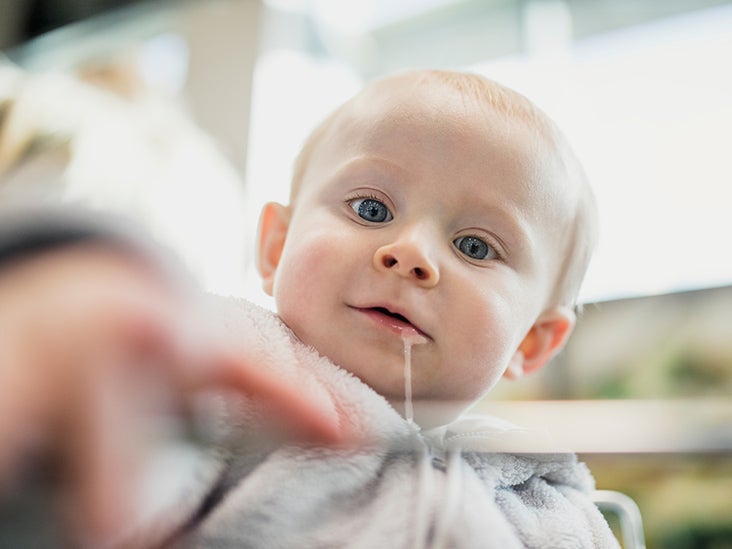
It happens when milk or food comes back up the babys esophagus. Infants spit up after feedings sometimes every feeding and often bring up some milk when they burp. This valve is not fully formed. In addition to difficulty gaining weight or possibly losing weight signs that reflux is causing a problem include that an infant. Once broken down the food goes on into the intestines so the nutrients can be absorbed by the body.

Can I Reduce my Baby Spitting Up. While it might be upsetting most adults cannot imagine this happening to them its rarely a serious problem. The reason why you might notice breast milk or formula coming out of your babys nose is infant reflux. It can seem like your baby is spitting up an awful lot but it is extremely rare for a baby to spit up an entire feeding. Whether your child is spitting up or vomiting its important to keep watch to.
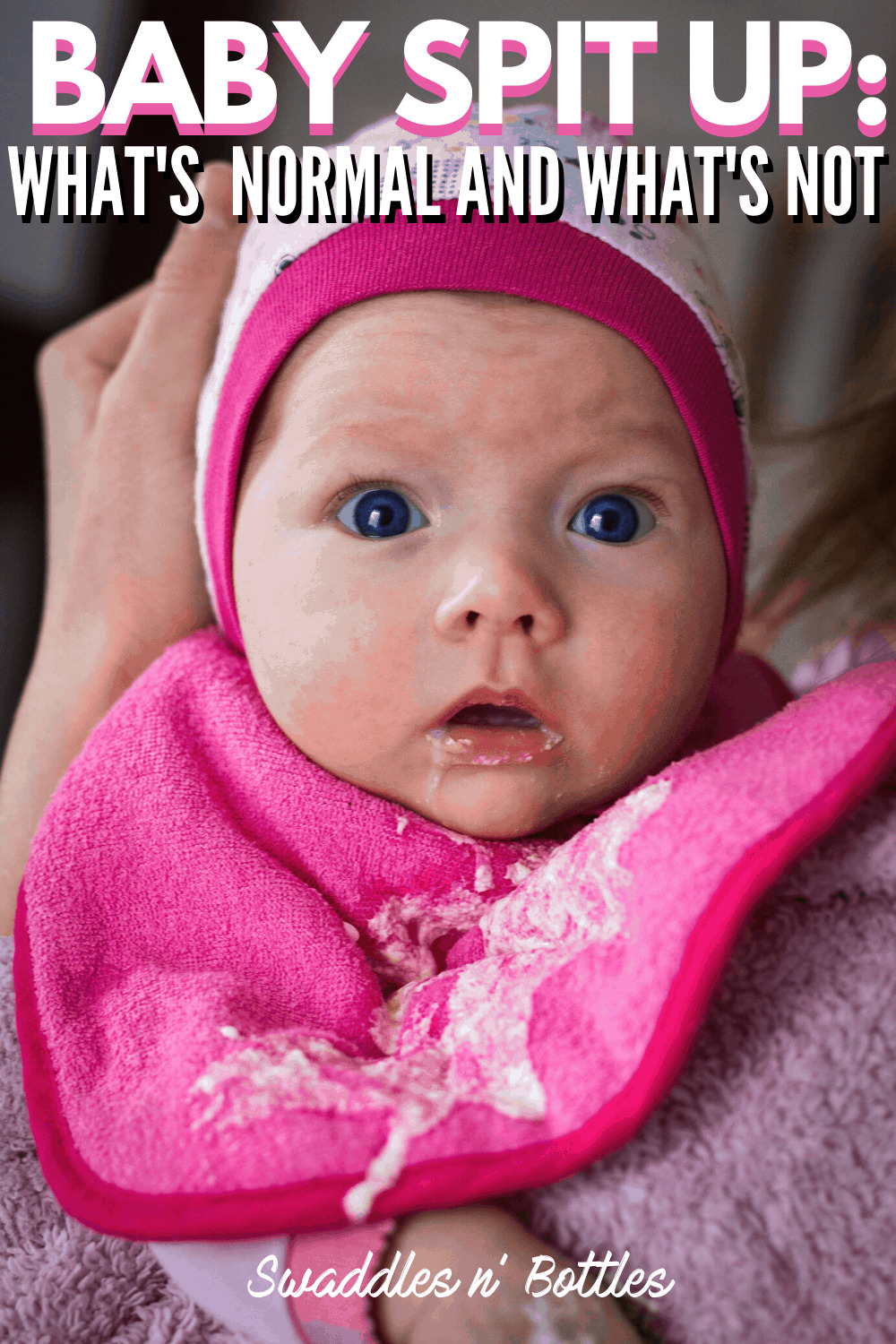
Allergic reactions usually accompany other symptoms like diarrhea or rashes. Its all about tummy size. While some babies simply seem to fare better with one formula over another without having a true allergy or intolerance an estimated 5 of babies are genuinely unable to handle the proteins found in milk or soy formulaa condition called milk-soy protein intolerance MSPI. It happens when milk or food comes back up the babys esophagus. Infants spit up after feedings sometimes every feeding and often bring up some milk when they burp.
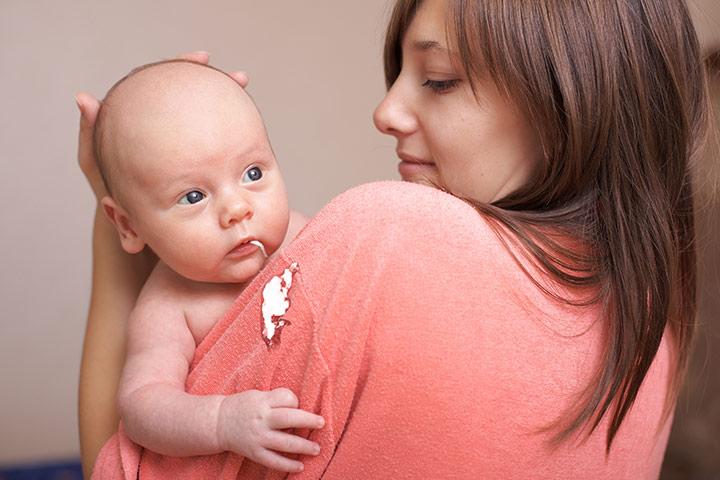
Can I Reduce my Baby Spitting Up. The reason for this is that digestion begins as soon as your baby swallows her first mouthful. In addition to difficulty gaining weight or possibly losing weight signs that reflux is causing a problem include that an infant. While it might be upsetting most adults cannot imagine this happening to them its rarely a serious problem. Some babies also spit up because they are sensitive to milk protein cows milk or the formula.
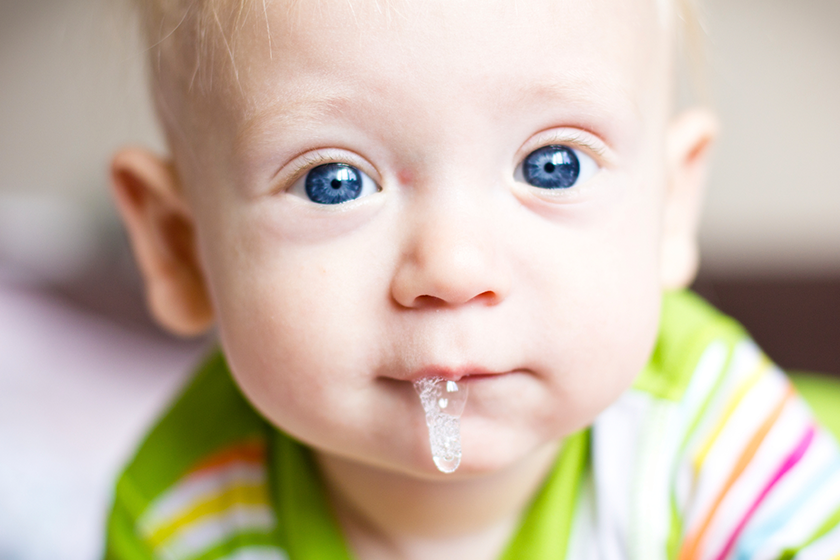
Spit-up also called reflux is generally not a cause for concernin fact 50 of babies spit up repeatedly in the first 3 months of life. If your baby is formula feeding theres a possibility that his formula could be contributing to his spitting up. Its estimated that at least 50 of babies would have done so before clocking 3 months. A pediatrician will help you figure the allergen. Food intolerance or allergy.

A pediatrician will help you figure the allergen. GER effects about 40 to 65 of babies ages one to four months and typically resolves around about one year of age. Spit-up also called reflux is generally not a cause for concernin fact 50 of babies spit up repeatedly in the first 3 months of life. Just in time to start throwing their food at you so you can rest assured your clothing will continue to be ruined and stained. If the muscle between the esophagus and the stomach lower esophageal sphincter relaxes when the stomach is full food might flow up the babys esophagus.
This site is an open community for users to do sharing their favorite wallpapers on the internet, all images or pictures in this website are for personal wallpaper use only, it is stricly prohibited to use this wallpaper for commercial purposes, if you are the author and find this image is shared without your permission, please kindly raise a DMCA report to Us.
If you find this site value, please support us by sharing this posts to your own social media accounts like Facebook, Instagram and so on or you can also save this blog page with the title why does my baby keep spitting up formula by using Ctrl + D for devices a laptop with a Windows operating system or Command + D for laptops with an Apple operating system. If you use a smartphone, you can also use the drawer menu of the browser you are using. Whether it’s a Windows, Mac, iOS or Android operating system, you will still be able to bookmark this website.









